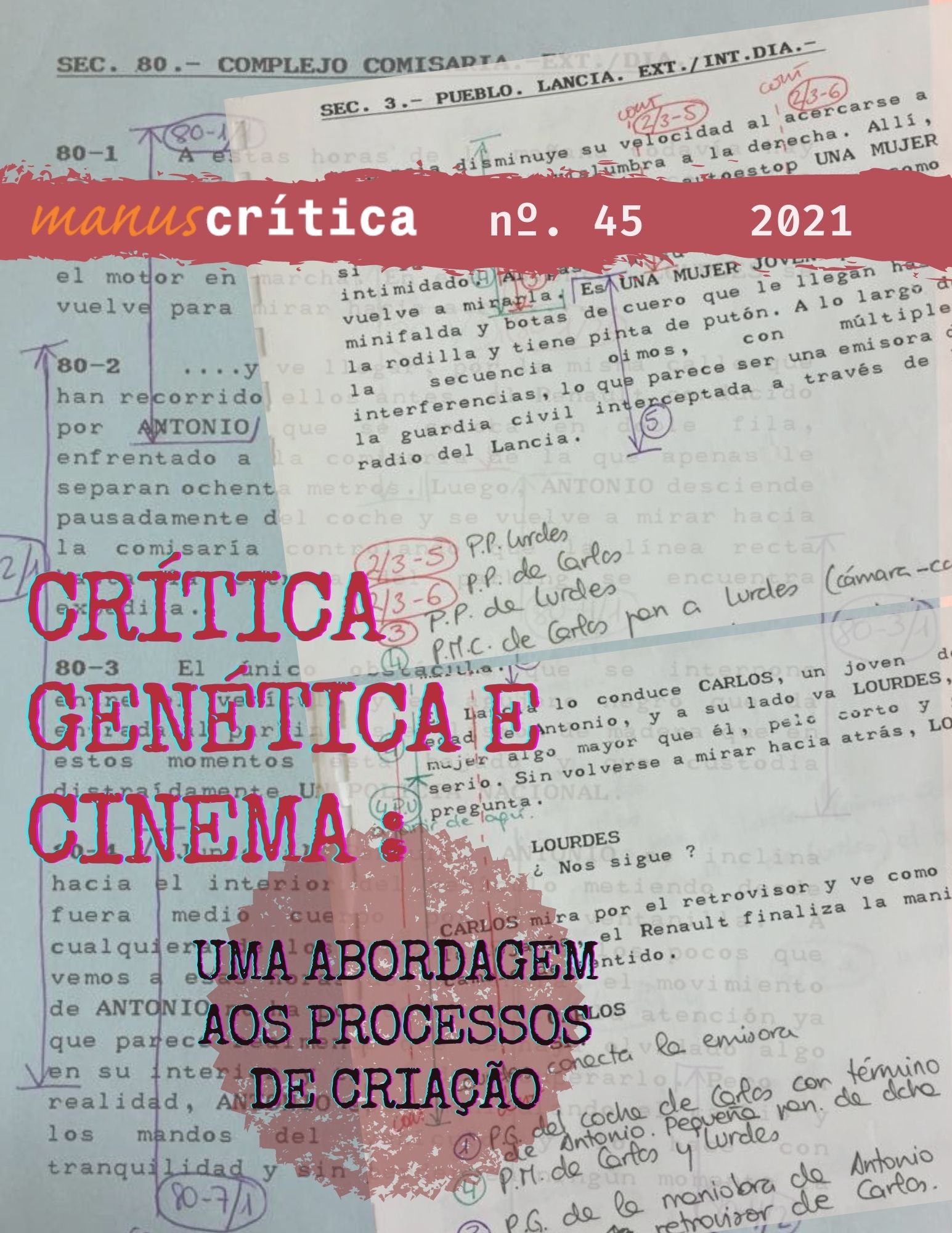Biblia: documento genealógico del entramado ficticio.
DOI:
https://doi.org/10.11606/issn.2596-2477.i45p42-55Palavras-chave:
Series de ficción, Biblia, Televisión, Guion, Narrativa, Genealogía textualResumo
El marco teórico que orienta y conduce este estudio abarca el proceso creativo que precede a la escritura de guiones para desarrollar una serie de ficción, en dicho proceso se establece un documento denominado en el argot profesional como biblia. Hay un asunto muy evidente y palpable, que es el propio contenido de una biblia, ya que en la misma narración de una biblia, se da a conocer de una forma muy detallada la materia con la que está configurado un relato y máxime aún este tipo de relato que se ha sido denominado por la crítica como un relato fragmentado. Este contexto es fundamental para entender una de las hipótesis planteadas, que toma como base que la biblia bajo su apariencia prosaica (es decir su forma en la que está escrita) puede constituirse como una crónica de la genealogía del sistema narrativo vigente en la industria televisiva. La biblia es un documento que precede al ámbito de la realización de las series de ficción, donde se especifica fundamentalmente los componentes organizativos de toda narración, entre ellos, los principios relativos a personajes, acción y espacio dramático. Es decir, se ha de ver que la biblia es un texto-manifiesto de las cuestiones fundamentales que dan entidad a un relato, por tanto: lo constituye y le da forma. De esta manera, se propone entender dicho documento como fuente primordial y legítima para el análisis dramatúrgico en el ámbito televisivo.
Downloads
Referências
BAL, M. . Teoría de la narrativa: Introducción a la Narratología. Madrid: Cátedra, 1990.
BURCH, N. El tragaluz de lo infinito. Madrid: Cátedra, . 1995.
CASETTI, F., & DI CHIO, F. Cómo analizar un film. Instrumentos. Barcelona: Paidós, 1991.
DIEGO GONZÁLEZ, P. La ficción en la pequeña pantalla. Cincuenta años de series en Es-paña. Pamplona: Eunsa, 2010.
FOUCAULT, M. Microfísica del poder. Madrid: Ediciones de la Piqueta, 1979.
JAKOBSON, R. Ensayos de lingüística general. Madrid: Seix Barral, 1975.
MARÍAS, J. Historia de la Filosofía. Madrid: Alianza Editorial,1999.
MAS, S. Aristóteles, Poética, Clásicos del Pensamiento. Madrid: Editorial Biblioteca Nueva, 2000.
MUKAROVSKI, J. Función, norma y valor estético como hechos sociales, -en Escritos de estética y semiótica del arte- . Barcelona: Plaza y Janés, 1999.
PALACIO, M. Historia de la televisión en España. Barcelona: Gedisa editorial. Barcelona, 1999.
SÁNCHEZ- BIOSCA, V., y JIMÉNEZ LOSANTO, E. (comp.). El relato electrónico, Valen-cia: Ediciones Textos de la Filmoteca, 1989.
SÁNCHEZ-ESCALONILLA, A. Estrategias del guión cinematográfico. Barcelona: Editorial Ariel, 2001.
Downloads
Publicado
Edição
Seção
Licença
Direitos autorais (c) 2021 Juan Manuel Díaz Lima

Este trabalho está licenciado sob uma licença Creative Commons Attribution 4.0 International License.













